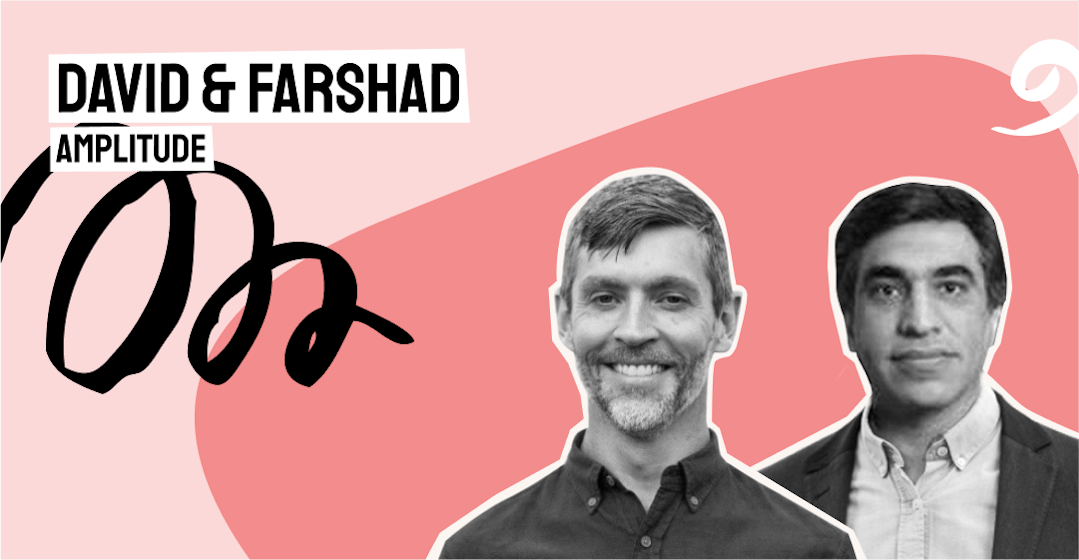
How Amplitude’s L&D and Engineering Leaders Team Up to Codify What “Great” Looks Like at Scale
Company values are easy to define in the abstract—but it’s much harder to codify how to embody them in practice. It’s even more difficult to ensure these values are passed on throughout a company as it scales. Yet, defining these processes is critical if businesses want to stay true to the foundational culture they’re built on.
The work done by Amplitude duo David Evans (Head of Talent Experience) and Farshad Rostamabadi (Head of Infrastructure Engineering) is a great example of how two teams worked together to build a framework for codifying ‘what great means’ at their company.
In our latest episode of L&D Plus, David and Farshad share how they elaborated this leadership development program, what’s at stake, and why it’s critical to bake collaboration from all corners of your company into this process.
Saving the podcast for later? Check out the interview highlights below.
Cracking the code to scaling company culture
Farshad came to Amplitude when it was still only a couple of hundred people. Fresh from tech giant AWS, Farshad quickly realized a few key things about his new workplace. He recognized that Amplitude's leadership team, including CEO Spenser Skates, cares deeply about their company culture, built on the values of humility, ownership, and having a growth mindset.
But he also saw that the way employees passed this culture on to new hires wasn’t scalable; it lacked defined codes of conduct that anyone at the company could clearly refer to. Farshad was worried that their current way of doing things wouldn’t keep up with the immense growth Amplitude was experiencing.
So he went looking for a better way, and ended up partnering with David. Farshad was eager to use what he had seen at AWS—the way they used “codes” during hiring or performance management—to speak a common language. Clarifying what great looks like was, for him, the key to effectively scaling the transmission of company values.
The way employees passed this culture on to new hires wasn’t scalable.
When it comes to company culture, why is it important that leaders speak the same language?
“Leadership is central to culture. The way the leaders lead is going to drive behaviors across the organization,” explains David. How those in leadership positions apply these values will greatly impact how they manage, and determine what it’s like to work at Amplitude for all the company’s employees.
Farshad gave a concrete example using the ‘growth mindset’ value. At Amplitude, managers are expected to apply this way of thinking at every level: they should increase the number of people in their team, but they’re also expected to be equally concerned with understanding how each individual on the team is growing, how team members interact with each other, and how this collaboration can help all of them to thrive.
This approach has come to be known as ‘learn, share, develop’, and it’s foundational to how Amplitude’s managers are expected to lead. Knowing exactly what’s required and how to refer to these desired leadership behaviors helps Amplitude maintain and amplify its culture.
Leadership is central to culture. The way the leaders lead is going to drive behaviors across the organization.
How do you transmit company culture to new leaders?
The heart of David and Farshad’s leadership development program was to start writing the dictionary for this new language. As David explains,
“We knew that Spenser [Amplitude’s CEO] and the rest of our current leadership team lead with humility, ownership, and growth mindset. So we knew what that looked like in the C-suite, but what does that look like a level down, a level down from that—what does that look like as a first-line manager to lead with humility, ownership, and growth mindset? So we started asking those questions to find a better way to both support the development of our managers at Amplitude and also scale our culture.”
This questioning led David and Farshad to develop several tools for talking about and applying Amplitude’s values, especially during hiring. Seeing as Amplitude is growing fast, the duo was especially concerned with finding ways to ensure new additions to the company embody their values.
The first tool was a scorecard that could be used during hiring—interviewers can note down in a standardized way if they think the person would be a good cultural fit. Another device is a technique called “disagree, discuss, agree, commit”. During an interview, it’s important that a candidate demonstrate they can have a productive disagreement and reach a consensus. By putting words to this desired trait, interviewers can more easily assess a candidate’s aptitude and themselves reach a consensus as to whether they’d be a good fit.
Why collaboration is key
What made this project particularly special was the richness of the teamwork between the L&D and Engineering teams. Farshad not only had his experience from AWS and knowledge of what great management looked like for engineers, but his rigorous developer mindset. His perspective on coding and maintaining infrastructure surely helped to form a leadership development program that was unique and best suited for Amplitude. David and Farshad encourage anyone tackling the same kind of project to, “include people with different experiences and different backgrounds” in the collaboration.
For more inspiring and actionable L&D stories like this one, be sure to check out other episodes of L&D Plus.



